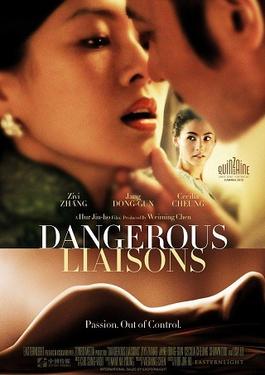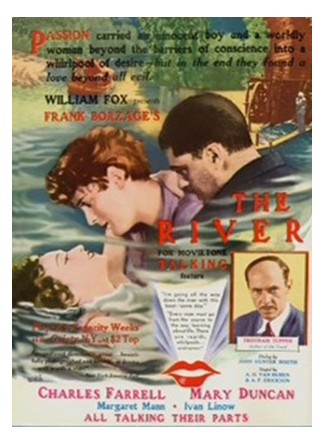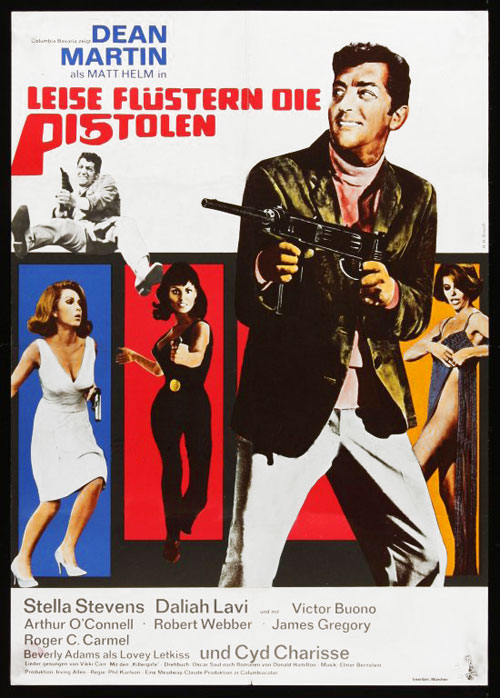Search This Blog
Tuesday, April 30, 2013
Big Jim McLain (1952)
Two investigators (John Wayne, James Arness) from the House Of Un-American Activities are sent to Hawaii to uncover Communist cells and expose them. Perfectly awful! So bad that it can't even qualify as "camp" (whatever that is!). It's entirely possible to make a good propaganda film, from either the right or the left, but this is one dull affair. This goes to ludicrous extremes like the Japanese woman (Soo Yong) who becomes a nurse in a leper colony to "atone for her crimes against humanity", i.e. she was a Communist! Not even an official with any power mind you, just a plain ole party member. Since the U.S.'s obsession with uncovering communists in the early 50s was a homegrown thing, when this film played in Europe, the film was titled MARIJUANA and the plot changed (mostly by the dubbing) to hunting down drug smugglers. Curiously the film doesn't take advantage of its lush tropical Hawaiian setting by shooting it in Technicolor and we get a B&W paradise instead. Directed by Edward Ludwig. With Nancy Olson as Wayne's love interest, Alan Napier, Hans Conreid and Veda Ann Borg, the liveliest performer in the film.
Week-End At The Waldorf (1945)
A varied group of people cross paths during a weekend at the posh Waldorf Astoria hotel in New York: a film actress (Ginger Rogers), a stenographer (Lana Turner), a war correspondent (Walter Pidgeon), a pilot (Van Johnson), a shady businessman (Edward Arnold), a reporter (Keenan Wynn), a young bride (Phyllis Thaxter) and a gossip columnist (Robert Benchley). If this sounds familiar, it's probably because this is a loose remake of the Oscar winning GRAND HOTEL. Your tolerance for this carbon copy may depend on your affection for the 1932 film, I can take it or leave myself. On its own terms, it's a glossy soaper given the full MGM treatment though it never rises above competence. MGM boasted that it had more stars than there are in Heaven and this film serves as a sampler of why they knew a thing or two about the "star" business. The film acknowledges its predecessor when Pidgeon utilizes some dialog from it and Rogers catches him, "Why, that's from GRAND HOTEL!". Directed by Robert Z. Leonard. With Leon Ames, Rosemary DeCamp, Xavier Cugat, Warner Anderson, George Zucco, Lina Romay and Jacqueline DeWit.
Sunday, April 28, 2013
Mud (2013)
Two young boys (TREE OF LIFE's Tye Sheridan, newcomer Jacob Lofland) living off the Alabama river encounter a murderer (Matthew McConaughey) hiding in the swamps. He befriends them and uses them to contact his lady love (Reese Witherspoon) into running away with him. A disappointment. Not a bad film by any means but a major disappointment coming off director Jeff Nichols last film, the compelling TAKE SHELTER. Using Mark Twain's Tom Sawyer and Huckleberry Finn as a jump off point, Nichols creates a primitively rustic preciseness that's a marvel to behold and his two young actors are a joy to watch. But he attempts to cram too much when one of the film's three storylines would have been enough. Nichols doesn't seem to trust his audience and though I warmed up to the movie immediately but I became uncomfortable when the two boys watched some venomous cottonmouths in the muddy water and it became obvious he was telegraphing to us that those snakes were going to bite one of the major characters before the movie was over. Add an unintentional strain of misogyny ("Don't trust women, they'll hurt you, deceive you") reinforced by several of the female characters and top it off with a laughable shoot 'em up finale and well ... as I said, a disappointment. Marvelous cinematography by Adam Stone and a first rate score by David Wingo though. With Sam Shepard, Sarah Paulson, Michael Shannon, Roy McKinnon and Joe Don Baker.
High Tide (1987)
Saturday, April 27, 2013
Yellow Submarine (1968)
80,000 leagues under the sea, the citizens of the country of Pepperland lead an idyllic existence where music and love dominate. But when they are attacked by the blue meanies, who hate music, they are turned to stone by the apple bonkers and it's up to Old Fred to escape in the yellow submarine and travel to Liverpool where he persuades The Beatles to return with him and restore Pepperland to its former state. One of the most visually striking animated films ever made, one doesn't need to be a Beatles fan to appreciate the adventurous Pop Art animation, the droll puns and visual jests but it's a double treat if you are. The animated interpretations of some of the Beatles' songs are so arresting that don't be surprised that when you hear the songs again, the film's images are conjured up all over again, notably Lucy In The Sky With Diamonds and Eleanor Rigby. The film features 16 songs by the Beatles and there's a lovely underscore by an uncredited George Martin. Directed by George Dunning. The Beatles themselves are voiced by other actors in the animation sequences but pop in during the closing credits.
Winter Kills (1979)
The Slender Thread (1965)
A graduate student (Sidney Poitier) volunteers at a crisis clinic monitoring phone calls in Seattle, Washington. Alone in the office in the evening, he receives a phone call from a woman (Anne Bancroft) who's just swallowed a bottle of barbiturates. As he attempts to keep her talking on the phone, a race against time begins to trace the call and get to the woman before she dies. The feature film debut of director Sydney Pollack, he does an admirable job of keeping up the tension quotient as the film switches back and forth between her backstory and the events that lead up to her suicide and the struggle to locate her. The film's problem is in its screenplay by Stirling Silliphant. Silliphant was responsible for much of the writing on such early 60s TV shows like THE NAKED CITY and ROUTE 66. Those shows don't hold up well today because of the contrived writing, artificial sounding dialog and mouthpiece moralizing of its writer. What makes those shows watchable today depends on the quality of the acting and the same applies here. Fortunately, Poitier and Bancroft deliver strong performances that mostly (but not always) overrides the unnatural dialog. The wiry score is by Quincy Jones. With Telly Savalas, Steven Hill, Dabney Coleman, Indus Arthur and H.M. Wynant.
Friday, April 26, 2013
That Midnight Kiss (1949)
When a doyenne (Ethel Barrymore) of Philadelphia society sponsors a new opera company, she has hopes that it will jump start her granddaughter's (Kathryn Grayson) singing career. But when a truck driver (Mario Lanza) turned opera singer replaces her temperamental leading man (Thomas Gomez), romantic sparks fly. What can one say? If Grayson's shrieking and Lanza's bellowing tenor are your cup of tea, you'll have a grand old time. It's a harmless slice of MGM cheese beautifully wrapped in Technicolor with Preston Ames and Edwin B. Wlllis' handsome art and set direction and Helen Rose's striking costumes. It's a nostalgic relic of the days when Hollywood was attempting to bring its idea of "culture" to the unwashed masses. I don't mean to be too hard on it, for what it is, it's quite watchable. This was Lanza's film debut and he's quite likable, you can see why audiences took to him. Directed by Norman Taurog. With Keenan Wynn, Marjorie Reynolds (MINISTRY OF FEAR), J. Carrol Naish, Jules Munshin, Arthur Treacher and Ann Codee.
Fukushu Suru Wa Ware Ni An (aka Vengeance Is Mine) (1979)
After a serial killer (Ken Ogata) is caught, in a series of flashbacks we see the story of his 78 days on the run from the first murder to his eventual arrest. Shohei Imamura's brilliant, chilly look at an abnormal homicidal mindset is one of the most disturbing films I've ever seen. Imamura is dispassionate to the extreme, never tipping his hand or our sympathies, leaving us distanced and filling the film with so many perverse and twisted characters that the murderer seems the only honest person in the movie. We never discover the why of his killing spree, it just seems impulsive and he shows no remorse. But his father (Rentaro Mikuni) pimps out his daughter in law (Mitsuko Baisho) the killer's wife and later, the father and daughter in law torture and kill a dog, the ex-con mother (Nijiko Kiyokawa), who's also a voyeur, of an inn keeper calmly watches her daughter (Mayumi Ogawa) being raped. Surely a testament's to Imamura's talents that he's able to hold us in in thrall in spite of (or because of?) these repulsive characters. Grisly and cruel, it's not a pleasant film to sit through but there's no contravening its power. Loosely based on a true story of the serial killer, Akira Nishiguci.
Thursday, April 25, 2013
Captain Horatio Hornblower R.N. (1951)
During the Napoleonic wars of the early 19th century, after successfully completing a secret mission in Central America, Naval Captain Horatio Hornblower (Gregory Peck) finds himself obligated to carry a British lady (Virginia Mayo) and her Spanish maid (Ingeborg Von Kusserow) back to England despite the dangers of attack by the French war vessels. Based upon the Horatio Hornblower novels by C.S. Forester, director Raoul Walsh gives us a pleasing vigorous Technicolor sea going adventure. Peck strikes an imposing figure as the sea captain and Mayo is all peaches and cream though neither even remotely attempts an English accent while surrounded entirely by a British supporting cast. But this isn't about authenticity, it's about entertainment and on that level, it succeeds. A nice balance of action and romance. Guy Green gets the credit for the vivid cinematography and Robert Farnon for the rousing score. With Stanley Baker, Robert Beatty, James Robertson Justice, Christopher Lee, Alec Mango and Diane Cilento as Hornblower's wife, who we never see, just hear.
Wednesday, April 24, 2013
Star Of Midnight (1935)
A Manhattan attorney and man about town (William Powell) is asked by a friend (Leslie Fenton) to help locate his missing girlfriend. A gossip columnist (Russell Hopton) has a vital clue to the girl's disappearance but before he can reveal it ... he is murdered. Assisted by his marriage minded girlfriend (Ginger Rogers), the lawyer attempts to track down the missing girl and solve the murder. Buoyed by the success of the previous year's THE THIN MAN, RKO thought they'd try a hand at a sophisticated mystery/comedy with Powell as a cocktail loving slumming amateur detective. It's minor (very minor) fun but the mystery isn't handled very well and some of the plot's conceits seem far fetched. For example, it's highly unlikely someone could be a big Broadway star by wearing a mask and never letting the public see her face. While Powell and Rogers have a certain chemistry, it's not as strong as their chemistry with their regular screen partners (Loy and Astaire). Directed by Stephen Roberts. With Paul Kelly, Ralph Morgan, Gene Lockhart and Vivien Oakland.
Tuesday, April 23, 2013
Unzipped (1995)
Monday, April 22, 2013
This Woman Is Dangerous (1952)
Sunday, April 21, 2013
The Big Wedding (2013)
When their adopted son (Ben Barnes) is about to get married, a long divorced couple (Robert De Niro, Diane Keaton) are forced to pretend they are still married to appease the birth mother (Patricia Rae), a conservative Catholic who does not believe in divorce, who will be coming from South America for the wedding. This does not sit well with the father's live in girlfriend (Susan Sarandon). Based on the 2006 French comedy MON FRERE SE MARIE (which to my knowledge never got a U.S. release), the director Justin Zackham (who also wrote the screenplay) has concocted a lightweight, generally amusing dysfunctional family comedy. There's nothing new here but Zackham manages to insert some strong zingers amongst the usual gags. Best of all, it allows a marvelous group of talents to strut their stuff. De Niro, Keaton and Sarandon bounce off each other like the old pros they are but Katherine Heigl, a relatively restrained Robin Williams and Christine Ebersole get to shine too. With Amanda Seyfried as the bride, Topher Grace, David Rasche and Ana Ayora.
The Matchmaker (1958)
In 1884 New York, a widow (Shirley Booth) supports herself by various means including matchmaking. She is currently looking for a wife for a wealthy Yonkers merchant (Paul Ford), who has his eye set on a young milliner (Shirley MacLaine) but the matchmaker has her own marital plans for the merchant. The Thornton Wilder play is perhaps most famous for its musical incarnation HELLO DOLLY! but this film version of the 1955 Broadway hit is a real delight. With its theatrical roots all in tact (the actors often break the fourth wall and speak directly to the audience), its an often sparkling comedic adventure with the players appearing to have a great time. This was the last of Shirley Booth's four film roles and her comedic timing is impeccable. Directed by Joseph Anthony (THE RAINMAKER). With Anthony Perkins as Cornelius, Robert Morse (the only actor from the original Broadway cast) as Barnaby, Perry Wilson as Minnie Fay, Wallace Ford and Gavin Gordon.
Saturday, April 20, 2013
Persepolis (2007)
Set in Iran, a young girl (Chiara Mastroianni) comes of age during the Islamic revolution of the late 1970s which saw the deposing of the corrupt Shah's western backed regime and the rise of the repressive Islamic fundamentalist government. Frustrated by the oppression of the new administration, her mother (Catherine Deneuve) and father (Simon Abkarian in the French version, Sean Penn in the English) send her to A French school in Vienna. Co-winner of the Jury prize at the 2007 Cannes film festival, this is a wonderful film. Based on the autobiographical graphic novel by Marjane Satrapi, instead of giving it the live action treatment, we're treated to a stark B&W (the contemporary sequences are in color) animated film that takes us into an insider's look at how it was living as a rather liberal family in a tyrannical country where even holding hands can get you picked up by the police. But beyond that, it works as an examination of a young girl in a country (Austria) that continually reminds her she's an outsider and a struggle to retain her identity. Directed by Satrapi and Vincent Paronnaud. With Danielle Darrieux as the grandmother in the French version and Gena Rowlands in the American. Deneuve and Mastroianni are the only two actors who play in both versions.
Friday, April 19, 2013
The Proposal (1959)
A land owner (Harry Moore) in late 19th century Russia asks his neighbor (David Bird) for his daughter's (Anne Robson) hand in marriage. But before he can even make his proposal to her, they begin arguing about the ownership of a few acres separating their estates. This short filmed play is about as close as Anton Chekhov (based on his 1890 one act play A MARRIAGE PROPOSAL) got to writing a farce but as a farceur, he's no Georges Feydeau. It's an elongated one joke skit, reputedly even Chekhov didn't think much of it. Perhaps some actors more adept at farce might have punched up the rather wan material but the three actors here are hopelessly adrift playing broadly as if to the balcony rather than the camera. Curiously or perhaps not, no director is credited.
The Thomas Crown Affair (1968)
A Boston millionaire playboy (Steve McQueen) plots a million dollar bank heist for pure kicks ..... and gets away with it. But when a glamorous insurance investigator (Faye Dunaway) gets on the case, they begin a cat and mouse game to see who'll blink first. But when they fall in love, the stakes are raised even higher. This elegant, sophisticated mix of action and romance is as shallow as they come but what a feast. The director Norman Jewison uses an innovative (for the time) split screen technique through out the film to mask a myriad of flaws but who cares when you've got the Star wattage of McQueen and Dunaway firing up the screen. Jewison knows his lead actors are his ace in the hole and he showcases them in a number of ways, the highlight of which is a chess game with no dialog, just Michel Legrand's seductive score and McQueen and Dunaway showing us just how erotic chess can be. But Jewison is savvy enough to give us a bittersweet ending (in contrast to the 1999 remake's happy ending) to keep it in perspective. The film's theme song The Windmills Of Your Mind (with lyrics by Alan & Marilyn Bergman) took home a best song Oscar. With Paul Burke, Jack Weston, Gordon Pinsent, Biff McGuire, Nora Marlowe and Judy Pace.
You And Me (1938)
A Shot In The Dark (1964)
Inspector Jacques Clouseau (Peter Sellers) is assigned to investigate the murder of the Spanish chauffeur of a wealthy aristocrat (George Sanders). The chief suspect is a maid (Elke Sommer) but when seven more murders occur, the case becomes more complex. Originally intended as a film version of the 1961 Broadway farce which itself was an adaptation of Marcel Archard's L'IDIOTE, the film was rewritten to accommodate the character of Inspector Clouseau from THE PINK PANTHER thus making it the second entry in the PINK PANTHER franchise. If it doesn't reach the farcical hilarity of its predecessor, it remains a close second in the series. Indeed, other than the first two entries, I find only the 1978 REVENGE OF THE PINK PANTHER tolerable. This entry is more than a series of gags for a Sellers one man show, the mystery is actually interesting (including an amusing send up of all the suspects gathered in the parlor as Clouseau reveals the murderer) and the rest of the cast each gets their little moments to shine. Directed by Blake Edwards (who co-wrote the screenplay with THE EXORCIST's William Peter Blatty). With Herbert Lom, Burt Kwouk, Martin Benson, Ann Lynn, Tracy Reed, Graham Stark, Moira Redmond and director Bryan Forbes as a guitar player in a nudist colony.
Thursday, April 18, 2013
La Ronde (1950)
Wednesday, April 17, 2013
Hell Bent For Leather (1960)
A horse trader (Audie Murphy) is attacked and has his horse stolen by a stranger (Jan Merlin) but he manages to wound him and causes the stranger to drop his rifle. But when he arrives in a small town carrying that rifle, he is mistaken for the stranger who is wanted for murder. So he goes on the run with a woman hostage (Felicia Farr, 3:10 TO YUMA) and while being pursued by a crooked sheriff (Stephen McNally) who knows he is innocent. Despite its S&M porno title, this is a nifty little western directed by George Sherman (BIG JAKE). It makes the most of its low budget and limited resources including some nice CinemaScope camera work utilizing some spectacular shots of its Lone Pine, California locations by Clifford Stine (THIS ISLAND EARTH). But it's the two villains at the opposite end of the spectrum, the cold blooded killer played by Merlin and the corrupt lawman played by McNally that takes this minor western into more provocative territory. With Robert Middleton (who has one terrific scene being brutalized by McNally), Herbert Rudley, John Qualen and Malcolm Atterbury.
Tuesday, April 16, 2013
Bathing Beauty (1944)
A songwriter (Red Skelton) enters an all girls school as a student to be near his new bride (Esther Williams) who has left him due to a misunderstanding. Originally intended as a Red Skelton vehicle, once MGM saw Williams in action (this was her third film but her first starring role) they gave her the star build up. It became the third highest grossing film in MGM's history and Williams became an MGM box office staple for the next ten years. It's a contrived piffle but MGM gives it the deluxe treatment with Technicolor, Harry James for jazz, Xavier Cugat for the rumba and a flashy water ballet for Williams at the finish. There are some pleasant diversions along the way like a funny sequence with Skelton in a ballet class and Ann Codee as his martinet instructor, another one with Skelton being detained by a Great Dane and a tuneful swing version of the Scottish ballad Loch Lomond. Directed by George Sidney. With Basil Rathbone, Janis Paige (in her film debut), Jean Porter, Ethel Smith, Helen Forrest and Donald Meek.
Monday, April 15, 2013
Fantasy Island (1977)
Sunday, April 14, 2013
Peter's Friends (1992)
A young British Lord (Stephen Fry) invites his best friends from his Cambridge days for a 10 year reunion at his manor for New Year's Eve. They're a mixed lot: a couple (Hugh Laurie, Imelda Staunton) who are recovering from the death of a child, a writer (Kenneth Branagh, who also directed) now living in Hollywood and his actress wife (Rita Rudner, who co-wrote the screenplay), a publisher (Emma Thompson) on her way to spinsterhood, a sex crazed costume designer (Alphonsia Emmanuel) and her latest boyfriend (Tony Slattery). Alas, things start to go downhill fairly quickly. The film is an amiable cousin to THE BIG CHILL but without the self important pretensions. If fairly predictable, there are some genuinely funny moments peppered through out the film. However, Fry's revelation at the end of the film no longer has the power it had in 1992. The soundtrack is chock full of great songs of the era by the likes of Bruce Springsteen, Tina Turner, The Pretenders, Cyndi Lauper and Tears For Fears. With Phyllida Law and Alex Lowe.
Jinxed! (1982)
A gambler (Rip Torn) follows a blackjack dealer (Ken Wahl) around because he has "jinxed" him, meaning he can't lose when the pigeon is his dealer. This means, of course, that the dealer is continually being fired. But soon a plan by the blackjack dealer and the gambler's abused mistress (Bette Midler) will change all that. Dreadful! A more appropriately titled film you couldn't find. Nothing goes right. The film isn't funny, there's no suspense, it's ugly looking (Reno has got to be high on a list of unphotogenic cities), the direction is sluggish and the actors are all at their worst. The screenwriter Frank D. Gilroy (THE SUBJECT WAS ROSES) had his name removed from the final cut. Sadly, it was director Don Siegel's swan song and in another career low point, Sam Peckinpah was reduced to working as the second unit director. This was the follow up to Midler's Oscar nominated break through performance in THE ROSE and she didn't make another movie for four years. It would have been nice to discover it wasn't so bad after all and didn't deserve its reputation but ... the film stinks! With Val Avery, Benson Fong, Jack Elam and Joan Freeman.
Saturday, April 13, 2013
To The Wonder (2013)
Le Testament D'Orphee (aka The Testament Of Orpheus) (1960)
A poet (Jean Cocteau, who wrote and directed) travels through time, without rhyme or reason, encountering characters he has created which have morphed outside his creation of them. He is lost, as we are, and trying to hopelessly make sense of everything ..... just as we are. It's probably best to not try and make sense out of Cocteau's swan song, a surreal journey through a poet's hallucination and just take it on face value as a dream. On that level, one can relax and enjoy the film's often startling imagery and witticisms. I mean it no disrespect by calling it a glorified home movie. There's a conspiracy and seeming spontaneity to the proceedings, as if Cocteau called up a few friends and said, "Hey, you want to be in the movie I'm shooting this weekend?". No, I'm not suggesting the film is a toss off, it takes a lot of talent to make something difficult look this free flowing. Among the familiar faces popping up in the film: Yul Brynner, Jean Marais, Charles Aznavour, Jean Pierre Leaud, Maria Casares, Claudine Auger and Francois Perier.
Friday, April 12, 2013
Side Street (1950)
One Way Passage (1932)
On an ocean liner traveling from Hong Kong to San Francisco, two people fall in love. But each has a secret they are keeping from the other. He (William Powell) is an escaped prisoner who will go to San Quentin for murder when they reach San Francisco. She (Kay Francis) has a terminal illness with only months to live. Sounds positively syrupy, doesn't it? Surprisingly, it's not. The director Tay Garnett (THE POSTMAN ALWAYS RINGS TWICE) keeps a tight rein on the sentiment. The relationship between Powell and Francis is kept muted and rooted in reality and the subtle ending is quite touching without being mawkish. Three supporting characters provide some much needed levity and humor. Aline MacMahon as a con woman posing as a French countess, Frank McHugh as an annoying (both the actor and the character) petty thief and Warren Hymer as the cop returning Powell to San Francisco who falls for MacMahon's "countess". Remade in 1940 as TIL WE MEET AGAIN.
Thursday, April 11, 2013
Ramrod (1947)
The headstrong daughter (Veronica Lake) of a ranch owner (Charles Ruggles) defies her father's attempts to coerce her to marry a powerful cattle baron (Preston Foster). When the man (Ian MacDonald) she loves is bullied out of town, she hooks up with a cowhand (Joel McCrea) to create her own empire. But the bloodshed begins and continues on both sides. Directed by Andre De Toth (HOUSE OF WAX), who happened to be married to Lake at the time, this is a first rate western for the most part even if it turns into a conventional oater in the film's last half hour. It's a harsh western where even good people do bad things. Lake must have been overjoyed to get a role that didn't rely on her glamour and required some strong acting on her part and she rises to the occasion. And it was nice to see actors normally associated with lighter material like Charles Ruggles and Don DeFore step out of their safety zone into darker roles. It joins the small group of "noir" westerns like Walsh's PURSUED. The effective underscore is by Adolph Deutsch (THE APARTMENT). With Lloyd Bridges, Donald Crisp, Arleen Whelan and Ray Teal.
Wednesday, April 10, 2013
Opening Night (1977)
The Romantic Englishwoman (1975)
After his wife (Glenda Jackson) returns from a vacation alone in Germany, her writer husband (Michael Caine) becomes obsessed with the idea that she slept with a "poet" who supports himself as a drug smuggler and gigolo (Helmut Berger, who else? It's a European 70s movie). He then attempts to fashion his suspicions into a film script. Life reflects art reflects life reflects ..... well, you get the picture. We're never quite sure if they really did sleep together. Are those flashbacks the husband's imagination? The wife's? Or something that actually occurred? Ultimately, it doesn't really matter. The director Joseph Losey turns what might have been an amusing satire into a portentous glammed up artsy (and not in a good way) piece of pork. The brittle Jackson is miscast as a bourgeois English housewife, Caine's performance is wildly uneven (it may be one of his worst performances) and is there anyone who actually finds the squeamish Berger attractive? Based on the novel by Thomas Wiseman (who shares the screenplay credit with Tom Stoppard). With Kate Nelligan, Michael Lonsdale, Nathalie Delon, Beatrice Romand and Reinhard Kolldehoff.
Tuesday, April 9, 2013
Holiday For Lovers (1959)
Monday, April 8, 2013
Muscle Beach Party (1964)
Sunday, April 7, 2013
Night Moves (1975)
A former football player turned private detective (Gene Hackman) is hired by an ex-actress (Janet Ward) to find her missing 16 year old daughter (Melanie Griffith). While his wife (Susan Clark) is being unfaithful to him, the detective finds the elements of the case as bleak as his dismantling personal life. Directed by Arthur Penn (THE MIRACLE WORKER), this is a crucial example of neo-noir. The film's fatalistic narrative nicely captures the disheartenment of the prevalent mood of so many films of the 1970s while still remaining faithful to the formalities of classic film noir. I don't think anyone who's seen it has forgotten it. In one of his 3 or 4 best performances, Hackman shows why he was/is considered one of the best actors of his era. Bruce Surtees (THE OUTLAW JOSEY WALES) did the evocative cinematography and Michael Small (KLUTE) is responsible for the expressive underscore. With James Woods, Jennifer Warren, Edward Binns, Harris Yulin and Kenneth Mars.
The Gay Divorcee (1934)
An American heiress (Ginger Rogers) comes to England seeking a divorce from her British husband (William Austin). To this end, her lawyer (Edward Everett Horton) arranges for her to be caught in flagrante delicto with a professional gigolo (Erik Rhodes) by the husband. But she mistakes the American dancer (Fred Astaire) pursuing her as the co-respondent. After their spectacular success in FLYING DOWN TO RIO in supporting roles, this was Astaire & Rogers first star pairing and it pretty much set the template for all Astaire & Rogers musicals to follow. It's based on a Cole Porter musical called THE GAY DIVORCE (the production code insisted on a title change. A divorcee could be gay, a divorce could not) but with the exception of the glorious Night And Day, all Porter's songs were jettisoned. The script is witty and while Astaire and Rogers (and their dancing) are undeniably the stars, it's the supporting players who give the film its punch. Most notably Alice Brady (IN OLD CHICAGO) as Rogers' airhead Aunt and Rhodes as the Italian gigolo murdering the English language. Directed by Mark Sandrich. With Edward Everett Horton and a pre-stardom Betty Grable who are adorable doing Let's Knock Knees.
Saturday, April 6, 2013
The Company You Keep (2013)
Wi Heom Han Gyan Gye (aka Dangerous Liaisons) (2012)
In 1931 Shanghai, a hedonistic playboy (Jang Dong Gun) and a wealthy businesswoman (Cecilia Cheung in the film's best performance) make a wager. If he can seduce the virtuous widow (Zhang Ziyi) of a beloved teacher, she will sleep with him. If he loses, he will give her a valuable piece of waterfront property. But when he falls in love with the widow, the socialite pushes the situation to a point where it will poison many lives. What is it about Pierre Choderlos De Laclos' 1782 novel that continues to fascinate both film makers and audiences? It's been filmed by Roger Vadim twice (in the 1950s then the 1970s), the well known 1988 Stephen Frears film followed the following year by Milos Forman's version, in 1999 there was the teen version called CRUEL INTENTIONS, in 2003 South Korea offered up its version and France did it again in the mini series format, several stage versions, two operas and a ballet! This version is from China (though its director Jin Ho Hur and its leading man are Korean). The pre-war 1931 Shanghai setting allows the sumptuous visuals (the eye candy wide screen cinematography is by Byung Seo Kim) but the ending is misguided and instead of sticking to the novel's tragic finale, it's more syrupy than irony. Still, that storyline is, as always, so compelling that it tends to push aside most complaints. The seductive score is by Sung Woo Jo. With Lisa Lu, Shawn Dou, Candy Wang and Rong Rong.
Friday, April 5, 2013
The Marriage Go Round (1960)
A happily married Academic couple, she (Susan Hayward) is the Dean Of Women and he (James Mason) is a professor, are entertaining a house guest from Sweden. But when the statuesque house guest (Julie Newmar, recreating her Tony award winning stage performance) makes a proposal that he father her baby, what begins as suggestion not taken seriously leads to a marital meltdown. What was daring and risque in the 1958 Broadway play by Leslie Stevens (THE WAR LORD) and its film version barely raises an eyebrow today. Which removes much of the play's teeth and leaves us with a gummy sex farce. Who thought it was a good idea to cast Hayward and Mason in a sex comedy anyway? Neither are exactly known for their farcical abilities. Fortunately, Newmar is a delight as the Swedish amazon who wants a genius to father her child and compensates for the two leads. However, Hayward does acquit herself nicely in a confrontational scene with Newmar over her husband. If only the rest of the film were on that level. Directed by Walter Lang (THE KING AND I). With Robert Paige and June Clayworth.
The Undercover Man (1949)
A U.S. Treasury agent (Glenn Ford) is frustrated in his attempts to bring down a mob syndicate to justice. Out of fear, no one wants to talk especially after one of Ford's mob contacts (Robert Osterloh) is murdered. Loosely based on the Al Capone case, this is a first rate job by director Joseph H. Lewis. As he proved with GUN CRAZY and THE BIG COMBO, he was adept at tight economical thrillers. This one is a no nonsense, gritty and fairly accurate portrayal of how Capone's empire was finally dismantled after the tax evasion case prepared by the Treasury. While Ford is more than adequate as the determined government agent, the film is bolstered with nice turns by an effective supporting cast down to the smallest parts. Robert Rossen (ALL THE KING'S MEN) produced, the sharp B&W cinematography is by Burnett Guffey (an Oscar winner for BONNIE AND CLYDE) and the solid score by George Duning (3:10 TO YUMA). Among the excellent supporting cast: Nina Foch, James Whitmore in his film debut, Barry Kelley (really good!), Kay Medford, Patricia Barry, Angela Clarke, Joe Mantell, Anthony Caruso, Howard St. John and as the man who turns the case around, Leo Penn (Sean's father).
The River (1929)
After her lover (Alfred Sabato) is arrested for murder, his mistress (Mary Duncan) chooses to remain behind in the deserted logging camp to wait for him during the long cold winter. But when a young boy (Charles Farrell) in his self made houseboat arrives, they find themselves strongly attracted to each other. It's difficult to appropriately judge this Frank Borzage film because so much of it has been lost including the film's beginning, ending and some large chunks in between. Those sections are filled in by film stills and intertitles providing a narrative based on the film's shooting script. But what remains is a lovely, even erotic (Duncan climbing into a nude Farrell's bed), romance between an older disillusioned woman and a young man who is still a virgin. Mary Duncan is a real find for me. A great screen presence with strong sex appeal. When, after a long separation, the two meet and he insists they celebrate and he takes out the checkers board, her look is priceless! What we have is good so I can only imagine how even better the film would be if so much of it hadn't been lost. With Ivan Linow as the deaf mute.
Thursday, April 4, 2013
The Silencers (1966)
A retired secret agent (Dean Martin), now working as a photographer, is recruited against his will back to work when enemy agents plot to drop a nuclear bomb in New Mexico for which the Russians will be blamed which will trigger another world war. Very loosely based on Donald Hamilton's novels THE SILENCERS and DEATH OF A CITIZEN, the screenplay credited to Oscar Saul abandons the serious tone of the Matt Helm books and instead turns it into a spy spoof and Matt Helm into a lecherous booze hound. Much of the film is vulgar with doses of sexism and racist humor (the Asian villain drinks diet Egg Foo Yung) but it's amiable and breezy so it's hard to take offense. Still, as a spy spoof it's more fun than the OUR MAN FLINT series. Martin, in particular, seems to be enjoying poking fun at his drunken satyr image and then there's luscious Stella Stevens to remind us what a sensational comedienne she was. The plot is pretty lame though even for a spoof. Directed by Phil Karlson. With Cyd Charisse (whose singing voice is dubbed by Vikki Carr) who gets to do one terrific number before they kill her off, Daliah Lavi, Robert Webber, James Gregory, Arthur O'Connell, Nancy Kovack and Richard Devon.
The Shining Hour (1938)
Tuesday, April 2, 2013
The Long Hot Summer (1958)
A Mississippi drifter (Paul Newman, who won the Cannes film festival best actor award for his work here) with a reputation as a "barn burner" arrives in a small town run by an imposing redneck (Orson Welles). The town's patriarch then schemes to marry off his spinster daughter (Joanne Woodward) to the hunky nomad. Meanwhile, his own son (Anthony Franciosa) finds himself in danger of being displaced by the drifter. Loosely based on William Faulkner's novel THE HAMLET and two short stories (BARN BURNING and SPOTTED HORSES), this is a wonderfully crafted piece of steamy entertainment. The screenwriters (Irving Ravetch, Harriet Frank Jr.) have soaked the dialog and atmosphere in faux Tennessee Williams fashion that one could be fooled into thinking it was the real thing and it's obvious that Welles' Will Varner is patterned after Williams' Big Daddy in CAT ON A HOT TIN ROOF. There's a genuine sensuality permeating almost every frame and the Alex North's superb music is one of the most erotic film scores ever written. Seamlessly directed by Martin Ritt. With Lee Remick, Angela Lansbury, Richard Anderson, Sarah Marshall and Mabel Albertson.
Monday, April 1, 2013
Sinatra (1992)
A young singer (Philip Casnoff) from Hoboken, New Jersey rises from band vocalist with the Harry James and Tommy Dorsey orchestras to one of the most iconic entertainers of the 20th century. The life of Frank Sinatra from an adolescent in 1920s New Jersey to his comeback from retirement in the 1970s at Madison Square Garden crammed into four hours is an almost impossible task to do properly and it isn't. It's more like great highlights (and low points) of his life. Sinatra is such a fascinating figure that despite its flaws, the film can't help but be entertaining. But there are problems. One, the film is produced by one of Sinatra's daughters (Tina Sinatra) and so is kinder to Sinatra than a more objective film maker would be. Two, Sinatra was a great Star with a potent presence whether in a nightclub or on a movie screen. Philip Casnoff who plays him is more than decent in the part but, and it's a big but, he lacks everything that made Sinatra a Star. Casnoff's "Sinatra" would never have made it and it doesn't help that he's lip syncing to a Sinatra impersonator rather than ol' blue eyes himself. The same problem with Marcia Gay Harden as Ava Gardner. Harden is a better actress than Gardner ever was but she's not a Star. Gardner was a Star. So there's no heat between Casnoff and Harden when playing Sinatra and Gardner, none of the sparks they apparently gave off in their professional as well as real life. Directed by James Steven Sadwith, who won an Emmy for his direction. With Olympia Dukakis as Sinatra's mother, Gina Gershon as Nancy Sinatra (the wife, not the daughter), Nina Siemaszko as Mia Farrow, Bob Gunton as Tommy Dorsey, David Raynr as Sammy Davis Jr., Joe Grifasi, Jeff Corey and Rod Steiger as mobster Sam Giancana.
Subscribe to:
Posts (Atom)








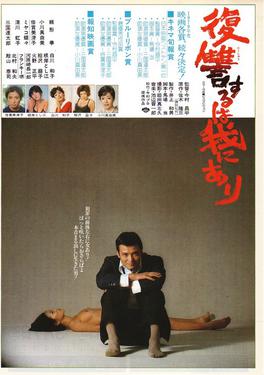


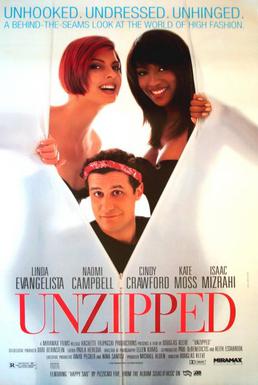



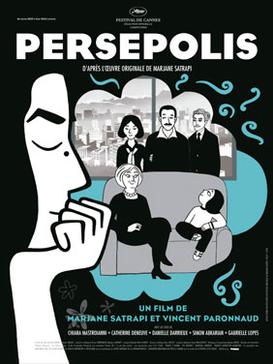
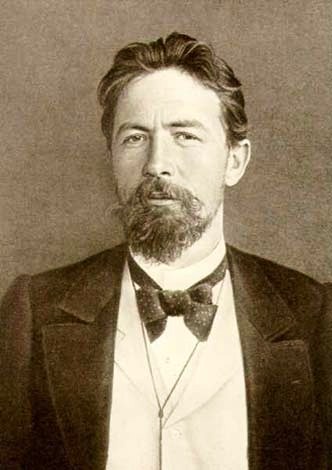




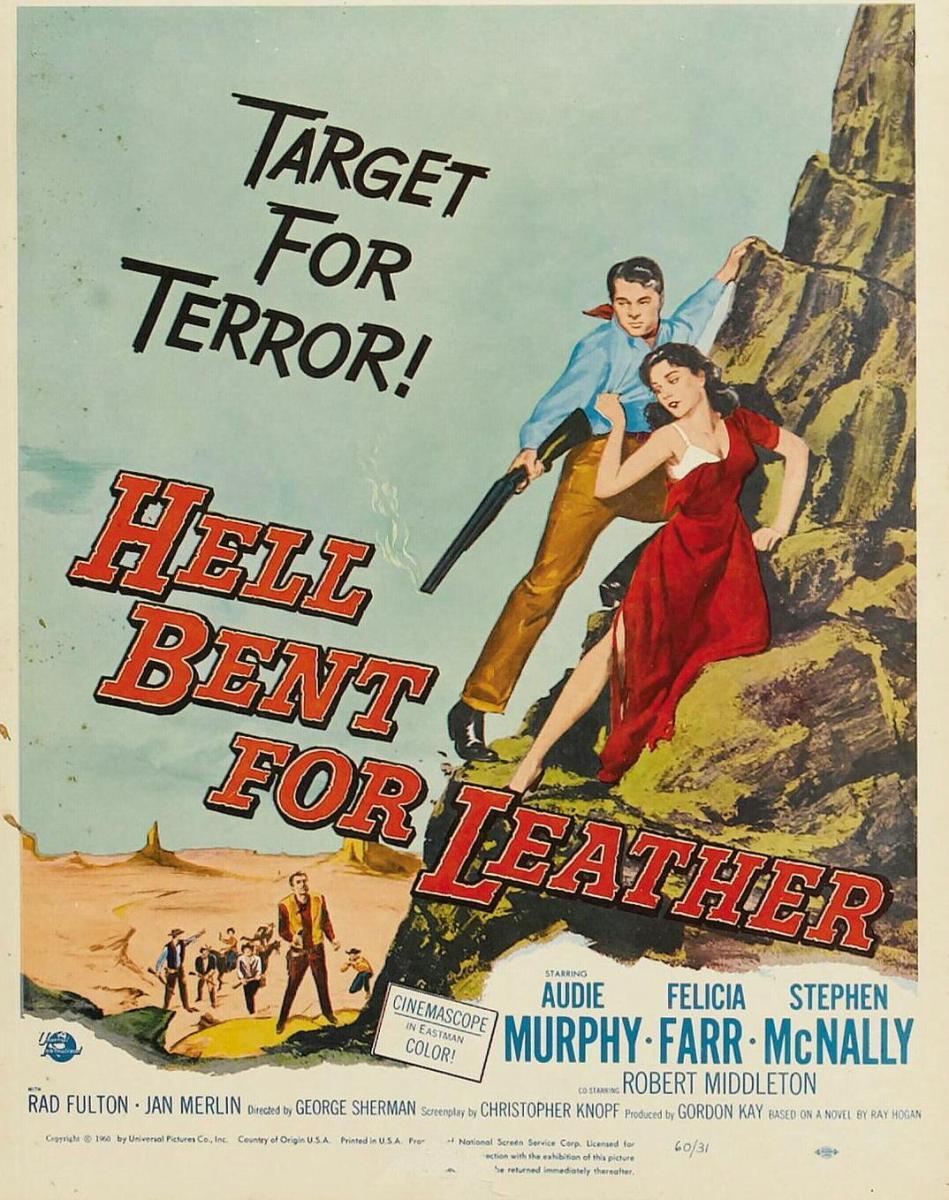









.jpg)






